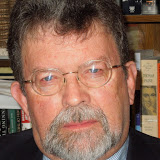But rather than demonstrating that the Gestapo office actually prevailed over the legitimate and ultimately correct Intelligence Community, and thus provided a central justification for war, Risen then undercut his reporting by erroneously concluding that "the Bush administration ultimately decided that the terrorism link was not strong enough to use as the central rationale for war."
Now, Mr. Risen has done it again, in his November 28, 2006 Times puff piece on Chris Carney, the recently elected Democratic Congressman from Pennsylvania -- and former member of Feith's Gestapo office. Rather than using the occasion to reexamine the impact of the Gestapo office, by grilling Congressman-elect Carney, Mr. Risen gave him a platform for dismissing the affair.
Which is why I wrote the following (unpublished) letter to the Times on November 28, 2006:
James Risen writes about Chris Carney's role as a member of Douglas Feith's Policy Counterterrorism Evaluation Group (PCEG), which gathered and disseminated evidence (subsequently shown to be false) linking Iraq to al Qaeda. According to Risen, Mr. Carney now assesses the probability of that link to be 2.5 out of 10. Left unasked was whether Carney reported his weak 2.5 assessment to Mr. Feith in 2002.
Mr. Risen also fails to mention the five legitimate Intelligence Community (IC) reports, dating from September 2001 to January 2003, which found no significant operational Iraq-al Qaeda links. Knowledge of these reports requires us to ask why the PCEG's erroneous briefings trumped the ultimately correct IC reports, which Vice President Cheney dismissed as "crap." Presumably a congress controlled by Democrats will ask why.
Finally, Mr. Risen errs when he asserts that "the Iraq-al Qaeda connection gradually faded as a major talking point" of the Bush administration. When? Certainly, not before the invasion!
In September 2002, Mr. Cheney called such ties "clearly official policy" on the part of Iraq. In his now infamous Feb. 5, 2003, speech to the United Nations about Iraq's weapons of mass destruction, Secretary of State Colin Powell added: "But what I want to bring to your attention today is the potentially much more sinister nexus between Iraq and the al Qaeda terrorist network." Finally, on March 1, 2003, just weeks before authorizing the invasion, President Bush asserted: "This dictator will not be allowed to intimidate and blackmail the civilized world, or supply his terrible weapons to terrorist groups."
Walter C. Uhler
Even the cursory evidence presented in my letter demonstrates the significance of the Iraq-al Qaeda link in the Bush administration's propaganda for war. And it also helps to explain why so many Americans today still believe that Saddam Hussein was involved in the al Qaeda attacks on 9/11.
Moreover, the issue of who led Americans astray into an illegal and immoral war is not a simple matter of Republicans versus Democrats. Many Democrats failed to even read the October 2002 National Intelligence Estimate before giving away their votes to support an immoral, illegal invasion of Iraq. Today, many of those Democrats find themselves hamstrung, limited to discussing the incompetence with which the invasion was carried out, rather than the Bush administration's fraud justifying invasion or their own failure to expose that fraud.
Mr. Carney, judging by Risen's puff piece, would like to do the very same thing. But, we simply cannot permit politics to trump the pursuit of the truth - especially if America is to reclaim the moral high ground in the eyes of the world.
Let the investigations begin!





